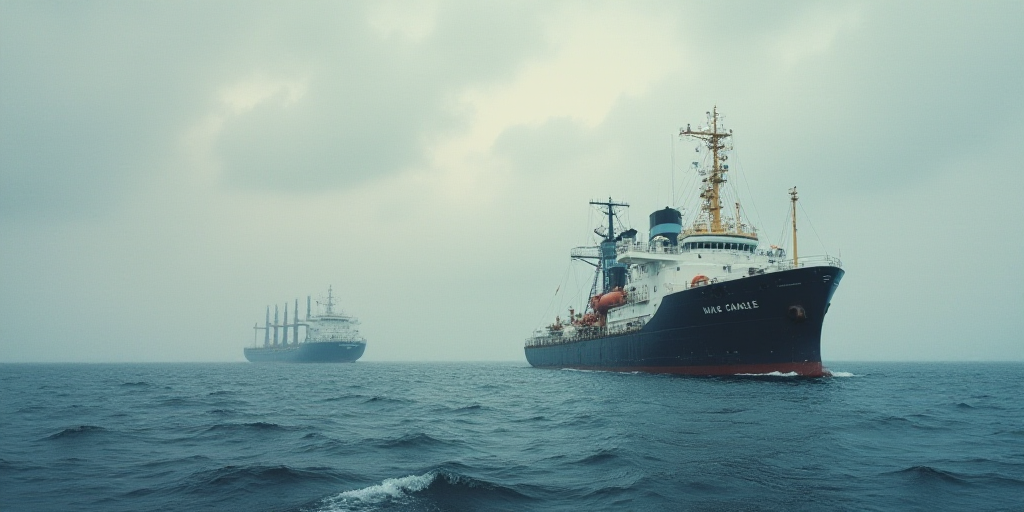Background on Key Figures and Context
The United States has long engaged in routine police operations to combat drug trafficking in the Caribbean, avoiding lethal force. Recently, tensions escalated between the US and Venezuela, with the latter sending a military vessel to overfly one of Washington’s ships in the region, according to the Pentagon.
Nicolás Maduro, the Venezuelan president, is accused by the US of leading a drug trafficking network. The reward for his capture has been increased to $50 million. In a significant move, US forces launched a missile attack against a vessel suspected of drug trafficking off the Venezuelan coast, resulting in the deaths of 11 individuals, as described by President Donald Trump as “narco-terrorists.”
Venezuela’s Interior Minister, Diosdado Cabello, criticized this attack as an “execution without a fair trial.” Meanwhile, Communication Minister Freddy Ñáñez suggested on Telegram that the attack footage might be “a video with artificial intelligence.”
Marco Rubio’s Regional Tour
The heightened tensions coincided with US Secretary of State Marco Rubio’s tour of Mexico and Ecuador, where he signed new alliances to strengthen the fight against organized crime and illegal migration. Rubio emphasized that his government would not back down from its efforts.
Allied governments in the region, according to Rubio, will assist in locating and neutralizing threats if necessary. In Quito, during a joint press conference with Ecuadorian Foreign Minister Gabriela Sommerfeld, Rubio stated, “These groups will not escape our reach.”
In Mexico, Rubio asserted that the only way to curb drug cartels is through physical elimination, as they view losing merchandise as part of the business and continue trafficking regardless.
Rubio highlighted that President Joe Biden designated the Venezuelan groups Tren de Aragua and Cartel de los Soles as “narco-terrorists,” linking them to Maduro. He emphasized that any individual or vessel carrying cocaine or fentanyl destined for the US poses an immediate threat.
Historical Context and Current Relations
By classifying drug trafficking groups as terrorist threats, the US employs its full legislative arsenal, expanded after the 9/11 attacks in 2001, to monitor and potentially lethally target threats globally.
While the UN’s annual reports do not label Venezuela as a major drug producer, its role as a distribution hub for drug trafficking is acknowledged by experts.
The rivalry between the US and Venezuela dates back to Hugo Chávez’s rise to power in 1999. Chávez expelled the anti-drug agency from Venezuela in 2005. Maduro, his successor, severed diplomatic relations with the US in 2019 after Washington refused to acknowledge his re-election the previous year. The US also dismissed Venezuela’s July 2024 elections, which the opposition claimed were fraudulent.
In 2020, the US formally accused Maduro of “narco-terrorism,” and this year, he was implicated in heading the Cartel of the Suns, allegedly connected to the Sinaloa Cartel, one of Mexico’s most powerful drug trafficking organizations. Other collaborators have been accused of money laundering, and two of Maduro’s nieces were convicted of drug trafficking in the US.
Key Actions and Timeline
- Late 2021: Venezuela sends a military vessel to overfly a US ship in the Caribbean, escalating tensions.
- Early 2022: US forces conduct a missile attack against a suspected drug trafficking vessel off the Venezuelan coast, resulting in 11 deaths.
- March 2022: Marco Rubio tours Mexico and Ecuador, strengthening alliances against organized crime and illegal migration.
- Ongoing: US classifies Venezuelan drug trafficking groups as “narco-terrorists,” employing expanded post-9/11 legislative powers.
Key Questions and Answers
- Q: Who is Nicolás Maduro? A: The president of Venezuela, accused by the US of leading a drug trafficking network.
- Q: What is the significance of the US sending F-35 fighter jets to Puerto Rico? A: It is part of the US anti-drug operation in the Caribbean amid heightened tensions with Venezuela.
- Q: How has Marco Rubio contributed to the situation? A: As US Secretary of State, Rubio has strengthened alliances in the region to combat organized crime and illegal migration, emphasizing that the US will not back down from its efforts.
- Q: What is the historical context of US-Venezuela relations? A: The rivalry between the two nations dates back to Hugo Chávez’s presidency in 1999, with tensions escalating under Maduro’s leadership.






